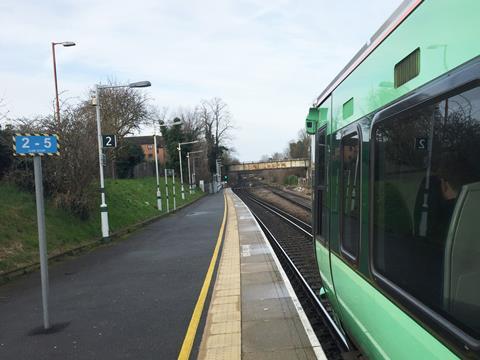
UK: On April 5 the Office of Rail & Road published the six high-level safety principles that it expects train operators to follow when rolling out and managing driver-controlled operation.
DCO is defined as a method of working where the train driver is responsible for door operation and determining that it is safe to start the train. How the driver determines whether the train is safe to start will be dependent upon the method of train dispatch and whether the supporting risk assessment requires other safety critical staff to be involved.
The principles drawn-up in consultation with the industry and trade unions are designed as a framework for operators considering introducing, or who are operating, DCO. The principles state that where driver-controlled operation is used or planned:
- trains need to be compatible with the platforms that they use and the method of operation at these platforms;
- platforms need to be compatible with the trains using them and they must support the methods of operation;
- the nature of the operation with the train and platform needs to be assessed, including consideration of passenger needs and behaviour;
- staff should be trained and competent;
- implementation should be planned;
- the system should be managed through its whole life, with improvements adopted.
'ORR's principles are designed to give guidance to industry about how best to plan and implement driver-controlled operation', said Ian Prosser, Her Majesty's Chief Inspector of Railways. 'The most important element is planning new arrangements well in advance, talking with staff and their representatives to address concerns and ensure they are informed about the progress of plans. These principles reinforce our view that suitable equipment, proper procedures and competent staff must be in place for the safe implementation of driver-control operation.'
Responding to the publication of the principles, Mick Whelan, General Secretary of train drivers' union ASLEF, said 'as train drivers, we want a safe, efficient, and modern railway delivering for passengers and business in Britain. What we don't want to see is the safety of our railway compromised by a ruthless desire to cut costs and increase profits'.
Whelan said the key element of the principles 'was that suitable equipment, proper procedures and competent staff must be in place'. ASLEF believes that at the moment they are not, and they should be achieved 'through dialogue and partnership with the people who, every day, deliver the service for passengers. Not the bean counters in the finance department of the TOCs looking to shave costs and push up profits.'
General Secretary of the RMT union, Mick Cash, said the ORR's statement was 'merely a mixture of undeliverables and lash-ups', which were 'designed to facilitate the removal of guards/conductors from Britain’s rail services.'

















